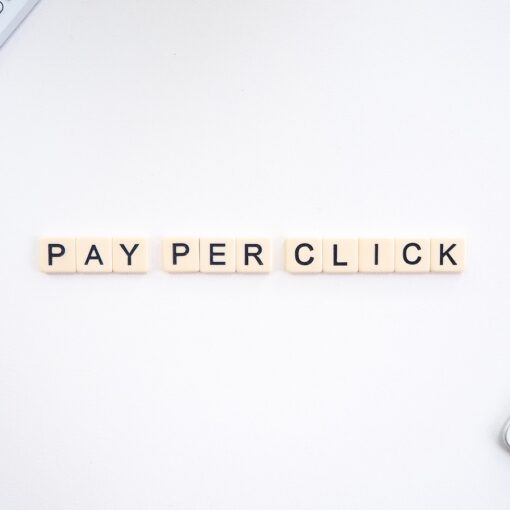
In the grand circus of online marketing, Pay-Per-Click advertising is the high-flying trapeze act—thrilling, risky, and occasionally resulting in a faceplant that leaves you wondering why you didn’t just stick to juggling.
Just when you think you’ve mastered the art of keyword selection, along comes a new trend that flips your carefully crafted strategy upside down like a pancake on a Sunday morning.
But fear not! With a little finesse and perhaps an extra shot of espresso, navigating the world of PPC campaigns can be less about dodging digital pies and more about landing gracefully into the arms of eager customers.
Think of it as matchmaking for your business—pairing the right keywords with ad copy so charming that even your mother would approve (and she’s notoriously hard to impress).
Every business needs to know how to effectively make use of online advertising. One way to do this is through a PPC campaign, or Pay-Per-Click campaign. A PPC campaign is a very common and highly effective method of targeting customers that are looking for the items or services your company offers. There are many factors that go into running a successful PPC campaign, including the keywords you choose.
The cost of advertising on Google Ads can seem a little overwhelming, but there are some tricks to make it more manageable. One trick is to set up campaign groups, with the ads in each group containing very similar keywords. For example, one group might focus on website design, while another targets people interested in coding.
Contents of This Page
Using Groups When Designing Pay Per Click Ads
PPC is a great way to not only drive traffic to your website, but also generate leads. However, with different types of campaigns and strategies available, it can be difficult to figure out which type of campaign aligns best with your business objectives. In this article, we will explore some different ways you can use PPC groups in order to design better campaigns.

PPC advertising is a popular way for companies to advertise their products or services. If you are new to this type of promotion, there are many things to take into consideration before planning your campaign. One of the most important aspects of PPC is deciding which keywords will be used in your campaign. This article will cover how to use groups when designing PPC ads.
Using groups in PPC can increase the number of users who see your advertisements and click on them.
Groups are a way to track clicks on a keyword or a group of keywords. For example, if you are running ads for multiple services, it could be beneficial to create a group with the same word in the title. For example, “Dog Behaviorist” and “Dog Trainer.” This way, if one is not performing as well as the other, you can allocate more money to that campaign.
PPC And Your Business Model – Selecting Your Budget
Many businesses will run a Pay Per Click campaign on Google Ads to build their online presence. Deciding how much you’re willing to spend will depend on the type of business model you have and your advertising goals.

There are generally two types of advertising goals: branding and conversion. To increase awareness, brands usually set a low budget, while conversion ads tell customers what they want them to do next.
When it comes to advertising, the general consensus is that big brands spend more money than small businesses. But not all businesses can afford a five figure budget for PPC. What about those with tighter budgets? How do they ensure their business is successful without spending as much? In this article, we will help you understand how to select a budget that fits your needs as a business owner and what to expect from the payoff as it relates to your investment.
PPC advertisers with a higher budget have the luxury of more data and analytics. They will be able to get more information on their results and are able to make better decisions about where to spend their money. If you want to have a successful PPC campaign, it’s important that you know your budget before you start. You’ll need to be honest about how much you’re willing and able to invest in order for your PPC campaigns to work out.
Designing Your PPC Ads Around Your Keywords
Many companies would like to invest in the platforms of Google Ads, Facebook Ads, and other PPC advertising platforms, but are unsure of how to design their ads so that they can generate the best possible results.

It is important for a company to know what keywords they are targeting when designing their ads, and to be specific with their call-to-action.
SEO and PPC ads go hand in hand. You need to use highly targeted keywords in your PPC campaign, but how do you know what those keywords are? One of the best ways to find out is by doing a keyword research.
Many people don’t realize that you can actually buy keywords and use them in your PPC campaign, which can help you stay ahead of competition.
There are also services that allow you to find these words for yourself for free.
The Internet is a vast and complex web of information. With so many options, it can be difficult to know what will produce the best results for your business. With the use of Google Ads, you can find out how to design your PPC ads around your keywords to get the best possible results.
Learning Your Figures Through PPC Analytics
Learning your figures through PPC analytics is a great way to not only understand your campaign goals, but also to hone in on the specific needs of your audience.

Any businessman or woman with a marketing department will tell you that the most important metric for any campaign is conversion rate. However, there are many other statistics that one should know when considering their performance. Knowing these simple statistics will help you best understand what your marketing team needs to do next to make improvements for future campaigns.
Many marketers are faced with figuring out how to use the PPC analytics that Google provides them. They can find it to be a daunting and complicated process as they try to decipher the data, especially if they have never done it before. However, from someone who has been doing this for years, there is one really simple way to make sense of the data, and that is by setting up your goals.
When you are learning your figures through PPC analytics, it is vital to understand how each advertisement is performing. The most important figure to track is Cost Per Click (CPC) and the Conversion Rate (CR). For instance, a website may have a CPC of $2 with CR of .01% or $1 for every 1000 impressions. So, if the website has had 100 impressions, then two clicks on that advertisement will result in one conversion.
Customer Lifetime Value And Watching PPC Metrics
Many businesses are now turning to data-driven marketing methods to help them increase customer lifetime value. After years of focusing on acquisition cost, many companies have made that shift to focus on maximizing customer lifetime value and watching PPC metrics.
When considering customer lifetime value – the total amount of profit a company will make from a customer over their lifetime – it’s important to take into account the cost of acquiring a new customer. PPC metrics can help you understand which channels are generating the most customers and the profitability of those channels. When evaluating these channels, it is important to not only focus on the number of customers generated, but also how much they spent.
When a customer spends money with your company, they are worth more the sooner they are acquired. With lifetime value analysis can help existing customers stay longer and become more loyal, while also acquiring new customers at lower cost. To increase your customer lifetime value, it is important to watch PPC metrics like Clicks, CTRs, Quality Score and Average CPCs. The higher these numbers are for each of these metrics, the more likely you will get the best return on your investment.
As we wrap up this whirlwind tour through the land of PPC campaigns, remember that success often lies in the fine print—or at least in choosing the right keywords before hitting “launch.” So go forth with confidence, armed with your newfound knowledge and an unwavering belief that every click could be the one that transforms your business from “meh” to “magnificent.”
And if all else fails, just remember: even if your ads don’t bring home the bacon, at least you’ll have some entertaining stories about how you tried to convince strangers on the internet to fall madly in love with your product. After all, isn’t life just one big advertisement for who we really are?
Suggested External Resources:
PPC Hero
https://www.ppchero.com
WordStream’s Ultimate Guide to PPC Advertising
https://www.wordstream.com/ppc
Google Ads Help Center
https://support.google.com/google-ads/

Kevin Collier is a seasoned writer and technology enthusiast with a passion for exploring the latest industry trends. With a background in digital marketing and content creation, he brings insightful perspectives to imhits.com on emerging technologies, innovations, and their impact on everyday life. When he’s not writing, Kevin enjoys experimenting with new gadgets and sharing his knowledge with fellow tech aficionados.





